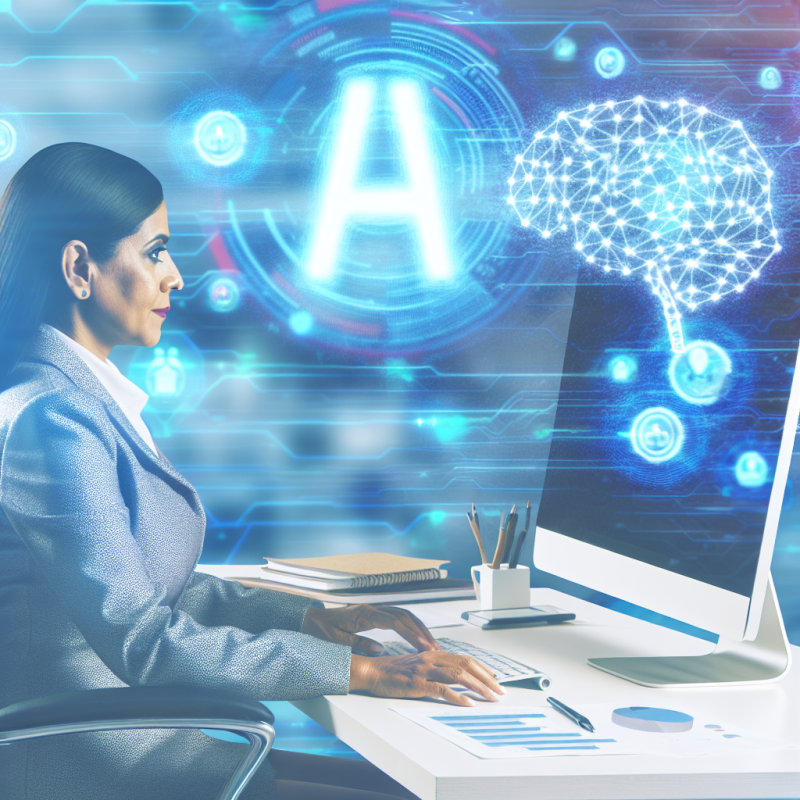When we talk about AI ethics, we’re diving into questions about how we use technology responsibly and fairly. It’s all about making sure that while we’re enjoying the many benefits of artificial intelligence, we’re also being mindful of the potential risks and impacts on society.
One of the core ideas in AI ethics is fairness. This means ensuring that AI systems treat everyone equally and don’t unintentionally harm specific groups of people. For instance, if an AI tool is used for hiring, we want to make sure it doesn’t favor one gender or race over another. Keeping things fair helps build trust in these technologies.
Another important aspect is transparency. People should understand how AI systems work, especially when decisions affecting their lives are made. If an AI tool decides who gets a loan or where to send police, it’s crucial for users to know what goes into those decisions. Being open and clear fosters accountability and helps demystify the technology.
Lastly, there’s the issue of privacy. With AI collecting and analyzing loads of personal data, it’s key to have strong privacy protections. Users should feel confident that their information is safe and that they have control over how it’s used. Respecting privacy helps maintain a healthy relationship between technology and its users.
Key Ethical Issues in AI Today
As we dive into the world of artificial intelligence, it's important to keep an eye on some key ethical issues popping up. One big concern is fairness. Many AI systems can unintentionally be biased, leading to decisions that favor one group over another. This can really impact things like hiring practices, lending, and even law enforcement.
Another hot topic is privacy. AI systems often rely on vast amounts of data to learn and make decisions. This can lead to questions about how personal data is collected, used, and protected. People want to know that their information is safe and that it's not being used without their consent.
Transparency is also a major issue. How do we know what AI is doing or how it comes to certain conclusions? When we don’t understand how an AI system makes decisions, it can be scary. It’s crucial for companies to be open about their AI processes so we can trust what they're doing.
Finally, accountability keeps coming up in discussions about AI. When something goes wrong—like a faulty algorithm making a serious mistake—who's responsible? It's a tricky question that the tech industry needs to address. Making sure there are clear guidelines and responsibilities can help build trust in AI technologies.
Real World Examples of AI Ethical Dilemmas
AI technology is becoming a part of our everyday lives, and with its growth come real ethical concerns. Let’s take a look at some situations that highlight the dilemmas we face in this rapidly evolving field.
One well-known example is the use of AI in hiring processes. Imagine a company using an algorithm to sort through hundreds of job applications. It sounds efficient, right? But what if that algorithm has biases because it learns from past hiring data? It could unintentionally favor one group over another, leading to unfair hiring practices. This raises a big question: how can we ensure that AI tools promote fairness and inclusivity?
Another area of concern is facial recognition technology. It's being used everywhere from law enforcement to marketing. While it can help catch criminals or create personalized experiences, it can also invade privacy and target specific communities unfairly. When AI can identify people without their consent, it leads to a struggle between safety and personal freedoms.
Then there's the issue of autonomous vehicles. Imagine a self-driving car facing a sudden obstacle. It has to make a split-second decision: should it swerve and potentially injure pedestrians or stay the course and risk the passengers? This moral conundrum is a classic example of how difficult it can be to program ethical decision-making into machines.
These examples show just how complicated the world of AI ethics is. As technology continues to advance, it’s crucial for us to think through these dilemmas and find ways to navigate them responsibly.
Steps for Responsible AI Development
When it comes to developing AI responsibly, it’s essential to follow a clear set of steps that prioritize ethics and safety. Start by building a solid foundation with diverse teams. Bringing together people from different backgrounds and experiences helps avoid blind spots and ensures that various perspectives are considered. This diversity can lead to more innovative solutions and a better understanding of potential impacts.
Next, focus on transparency. Make sure your AI systems are understandable not just to developers, but to users as well. This means explaining how decisions are made and having open communication about what the AI can and cannot do. When users know what to expect, it builds trust and allows for informed use, reducing fear and misconceptions about the technology.
It's also crucial to establish guidelines for data use. Protecting personal data and ensuring it's collected and used responsibly should be a top priority. Researchers and developers should use anonymization techniques when possible and always prioritize consent. This helps safeguard user privacy and ensures that data is used ethically.
Finally, embrace ongoing evaluation and feedback. AI technology constantly changes, so regularly assessing your systems can help identify any ethical concerns. Be open to user feedback and adjust your systems as necessary. This continuous learning approach not only improves your AI but also reassures users that their concerns are taken seriously.



